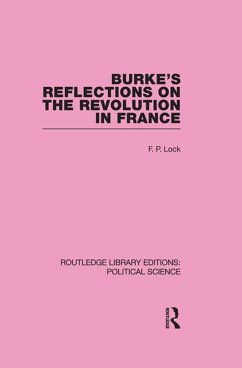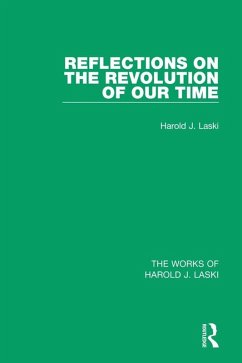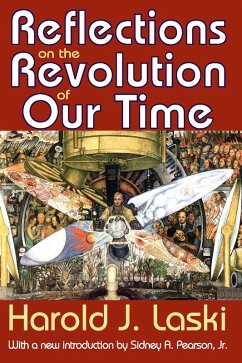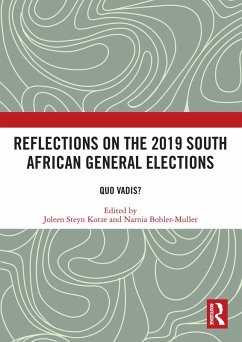
Reflections on the Revolution in France (eBook, ePUB)
Enriched edition. A Critical Analysis of Revolutionary Movements and Political Theory in the Enlightenment Era
Kommentar: Northam, Vanessa / Redaktion: Good Press

PAYBACK Punkte
0 °P sammeln!
In "Reflections on the Revolution in France," Edmund Burke offers a profound examination of the tumultuous political transformations occurring during the late 18th century, particularly the French Revolution. Written in a polemical and eloquent style, the work critiques the radical changes instigated by revolutionary fervor, emphasizing the importance of tradition, social order, and gradual reform. Burke's reflections pivot on the philosophical underpinnings of liberty and authority, drawing on the rich tapestry of European Enlightenment thought while contrasting it with the revolutionary exce...
In "Reflections on the Revolution in France," Edmund Burke offers a profound examination of the tumultuous political transformations occurring during the late 18th century, particularly the French Revolution. Written in a polemical and eloquent style, the work critiques the radical changes instigated by revolutionary fervor, emphasizing the importance of tradition, social order, and gradual reform. Burke's reflections pivot on the philosophical underpinnings of liberty and authority, drawing on the rich tapestry of European Enlightenment thought while contrasting it with the revolutionary excesses that he foresees as dangerous and destabilizing. This text serves as an essential discourse on the volatile interplay between society and government, asserting that abrupt changes can unravel the social fabric upon which civilization relies. Edmund Burke, an Irish statesman and philosopher, is widely regarded as the father of modern conservatism. His lived experience during a period of turmoil fostered a deep appreciation for the complexities of governance and the historical roots of societal structures. The polemic was partly inspired by his observations of the American Revolution and a fervent belief that the lessons of history must inform political action. Burke's insights reveal his skepticism towards unbridled democracy and his steadfast commitment to incremental reform as a means of preserving societal stability. Readers seeking a nuanced understanding of political philosophy and the consequences of revolution will find "Reflections on the Revolution in France" indispensable. Burke's eloquence and compelling arguments present a cautionary tale about the risks associated with radicalism and the value of tradition. This book is essential for anyone contemplating the balance between liberty and order in their own socio-political environment. In this enriched edition, we have carefully created added value for your reading experience: - A succinct Introduction situates the work's timeless appeal and themes. - The Synopsis outlines the central plot, highlighting key developments without spoiling critical twists. - A detailed Historical Context immerses you in the era's events and influences that shaped the writing. - An Author Biography reveals milestones in the author's life, illuminating the personal insights behind the text. - A thorough Analysis dissects symbols, motifs, and character arcs to unearth underlying meanings. - Reflection questions prompt you to engage personally with the work's messages, connecting them to modern life. - Hand-picked Memorable Quotes shine a spotlight on moments of literary brilliance. - Interactive footnotes clarify unusual references, historical allusions, and archaic phrases for an effortless, more informed read.
Dieser Download kann aus rechtlichen Gründen nur mit Rechnungsadresse in A, B, BG, CY, CZ, D, DK, EW, E, FIN, F, GR, H, IRL, I, LT, L, LR, M, NL, PL, P, R, S, SLO, SK ausgeliefert werden.













